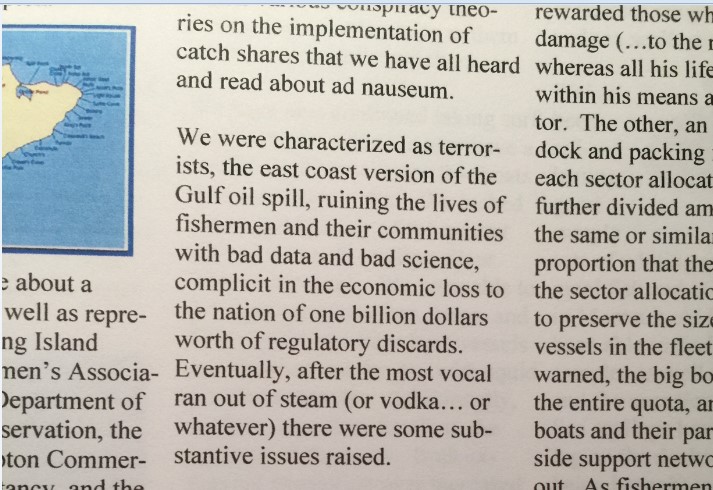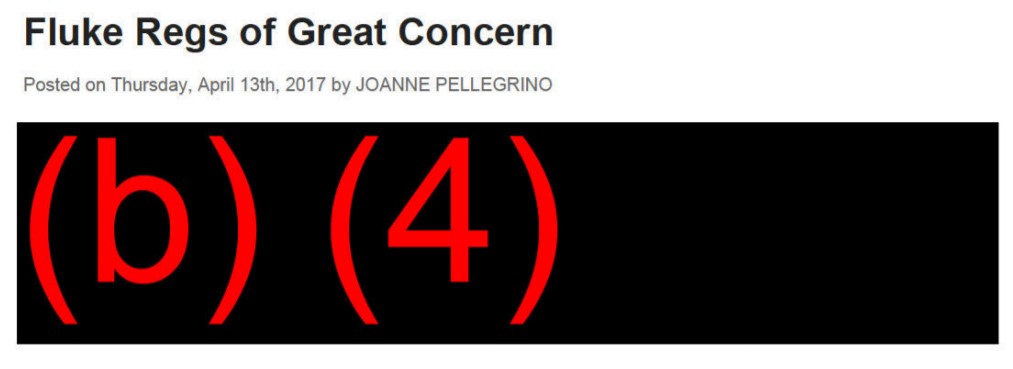Imagine being a New England fisherman. You’re subject to complex and burdensome regulation, and the federal government isn’t exactly helping to keep your way of life afloat. In fact, its officials have worked increasingly to limit your ability to catch fish and to impose onerous costs on your continued livelihood. Take, for example, the legally dubious requirement that groundfish sector members pay up to $700 per day to have “at-sea monitors” ride their boats and watch them fish—a scheme that could put 60% of small-scale fishermen out of business. Consider also the efforts underway to expand industry-funded monitoring to all other regional fisheries.
If oppressive regulation weren’t enough, now picture these same officials publishing a secret internal newsletter that describes their dealings with you and your fellow fishermen in less-than-flattering terms. Sadly, this isn’t a hypothetical situation. According to records obtained by Cause of Action Institute (“CoA Institute”) from whistleblowers and under the Freedom of Information Act (“FOIA”), National Oceanic and Atmospheric Administration (“NOAA”) employees in the Greater Atlantic Regional Fisheries Office have long circulated a paper that often contains their candid feelings towards the fishermen with whom they are supposed to collaborate.
In one article, dated June 29, 2010, Port Agent Victor Vecchio, who works in the “Stakeholder Engagement Division,” described fishermen at a “groundfish outreach meeting” as spreading “various conspiracy theories,” at least until they “ran out of steam (or vodka . . . or whatever).”
Figure 1: Vic Vecchio, “Groundfish Outreach Meeting–Montauk, NY 6/29/2010,” Fathoms (July 2, 2010)
In response to an October 17, 2017 FOIA request, the National Oceanic and Atmospheric Administration released a complete copy of its April 1-15, 2017 issue of Fathoms, which was heavily redacted to “protect” confidential commercial information. The range of topics covered in the paper include news about enforcement actions, in-season events (such as the opening of the recreational fishery), the impact of weather patterns on fishing activity, and even scientific developments. Much of this appears benign and, indeed, informative. But, as expected, the issue also discusses the industry’s frustration with planned regulatory actions. The entire content of that article was conspicuously redacted.
In addition to filling a follow-up request for all issues of Fathoms from December 2015 to the present, CoA Institute has filed an administrative appeal challenging NOAA’s heavy-handed redactions. Exemption 4, which protects confidential commercial information, does not typically apply to government-generated information. More importantly, the sort of information contained in Fathoms could hardly be described as “confidential” because it would neither impair NOAA’s ability to obtain information from fishermen in the future nor cause a competitive disadvantage to any part of the fishing industry.
It seems instead that the National Oceanic and Atmospheric Administration is hiding behind an exemption designed to protect businesses in order to actually keep secret its criticism of businesses. CoA Institute’s staff attorneys have spoken to a number of fishermen who are completely unaware of the existence of Fathoms. Given the derision they likely receive in its pages, they are unlikely to be too pleased by efforts from the National Oceanic and Atmospheric Administration to block disclosure.
NOAA’s shenanigans don’t end there. Another record disclosed to CoA Institute suggests that there’s a second internal digest—Dock Buzz—that could similarly provide insight into the government’s relationship with the New England fishing industry. CoA Institute also continues to investigate NOAA’s likely violation of federal records management laws in failing to preserve employee Google Chat/Google Hangout records.
Ryan P. Mulvey is Counsel at Cause of Action Institute.

